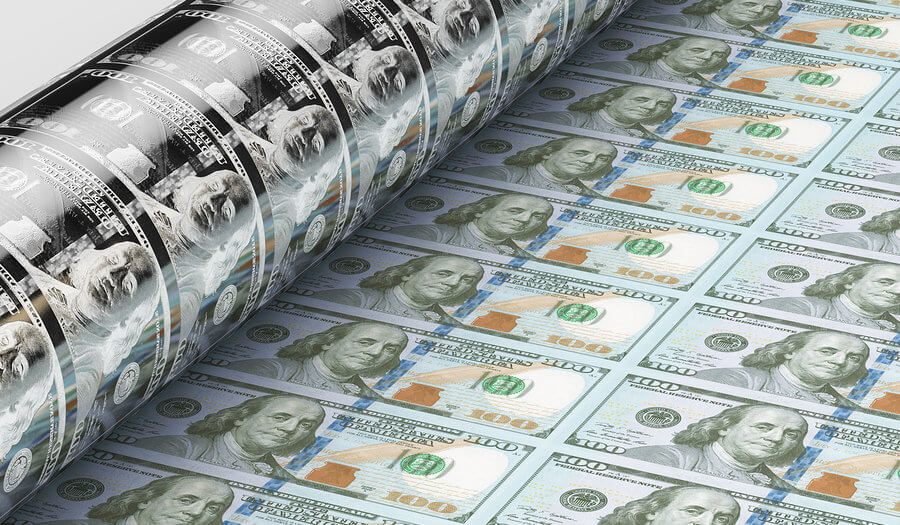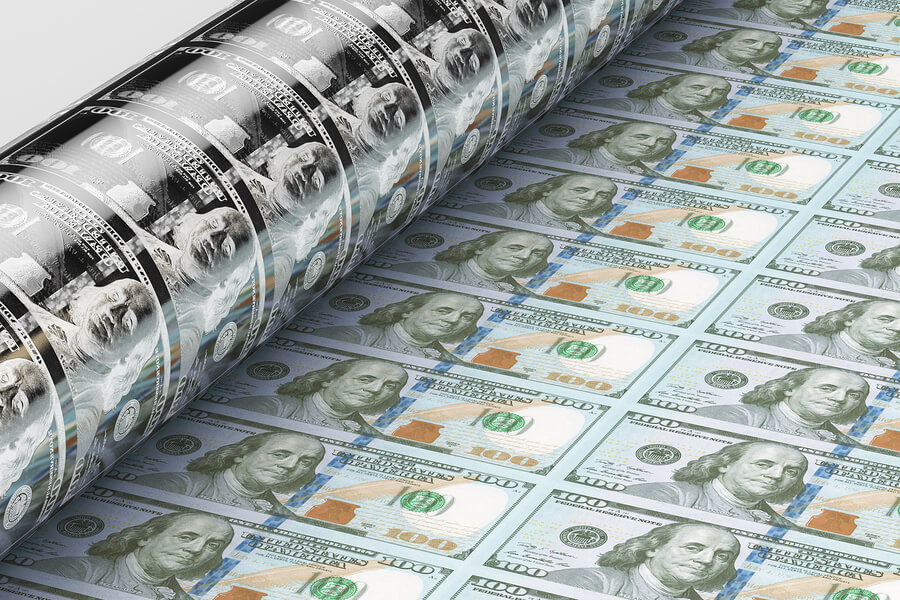Last Updated on July 23, 2023 by pf team
When choosing a money market vs savings account you have to decide wether you want to invest money rather than save. Savings accounts have been the go-to solution for safety-conscious savers for decades but money market accounts may be a viable alternative.
There are many reasons why someone might want to save money rather than invest. Reduced risk is near the top of the list as is access to funds when you need them.

In this article :
What is the difference between money market vs savings accounts?
Both money market accounts and savings accounts are available through your local bank or online bank. Credit unions offer both products as well. The two types of accounts have more in common than you might think.
Both pay a higher interest rate than a checking account, which allows your money to work for you, building in value over time as you accrue more interest.
Safe investments
Both types of accounts are also considered to be safe investments, which means your principal is protected while also earning interest.
The largest differences between a money market account and a savings account from a consumer standpoint are access to funds and the interest rate on account balances.
With a standard checking account, you can access your money through withdrawals or through transfers to another account, like a checking account.
Money market accounts often provide checking privileges or a debit card you can use to make purchases with your account balance.
Interest rates
Interest rates also tend to be higher with a money market account than with a savings account.
However, it’s common for money market accounts to pay tiered interest rates based on the amount of money you have in your account, with larger balances earning higher rates.
For smaller balances, there may not be any meaningful difference in interest rates for a money market account when compared to a savings account.
Both money market accounts and savings accounts pay variable interest, which means the interest rate on balances can go up or down over time.
Minimum balances
Minimum balances can be a consideration as well. Savings accounts tend to have low minimum balance requirements, whereas money market accounts can have higher minimum account balance requirements or initial deposit requirements.
However, if you shop around, you may find a money market account that’s more flexible. It’s also important to mention a commonly confused term.
There are two types of financial products that share the name “money market”. Here, we’re discussing money market accounts, which are commonly available through banks and credit unions.
Money market accounts are considered to be deposit accounts, which makes them eligible for federal insurance.
Money market funds, an at-risk investment product with a similar name, are mutual funds purchased through a broker or mutual fund provider and are not insured by any federal programs.
When to choose a money market deposit account (MMDA)?
A money market account is sometimes also called a money market deposit account or money market savings account. The money you deposit in a money market account is then used by the bank to fund loans to other people or businesses.
Often, you’ll be issued checks or a debit card with which you can make payments or purchases from your account balance. However, there are some key considerations:
Pros of a money market account
- Higher interest rates: Often you can expect higher interest rates on money market accounts when compared to savings accounts. However, you may need to shop around to find the best rates. The interest rates on money market accounts from some banks are comparable to the rates on savings accounts, which removes a key advantage of using a money market account.
- Tiered interest rates: Many money market accounts are structured to reward savers with a higher interest rate as account balances reach certain tiers. For example, one well-known bank doubles interest rates on money market accounts when a $2,000 balance is reached and doubles interest rates again at $10,000.
- Checking privileges or debit card: Money market accounts can provide more convenient access to your money than savings accounts. Expect limited checking privileges or online bill payments — or even a debit card.
Cons of a money market account
- High initial deposit or minimum balance requirements: It’s common for money market accounts to require a higher balance to avoid fees. Often this amount is $2,000 but some money market accounts may require a higher amount.
- Transactions are limited in number: Federal law limits the number of online or phone transfers to six per monthly cycle. Checks are limited as well but banks or credit unions can place additional restrictions or impose fees at a lower number or transfers or payments, like three instead of the six allowed by federal regulations.
- Fees: It’s very easy to incur fees on a money market account, with the most common fees being due to balances that fall below a minimum amount or for exceeding the number of allowed transactions.
A money market account is often the best fit if you can afford to keep a larger balance while saving. If you suspect you’ll need to dip into your savings regularly, there may be fees for going below a certain balance or for exceeding the number of allowed transactions.
These fees can be enough to negate your monthly interest earnings on smaller balances. Consider a money market account for situations where you aren’t as likely to need money from your account often, like with an emergency savings fund or savings earmarked for quarterly tax payments.
When to choose a savings account?
A savings account is a more common type of deposit account, but being more common doesn’t make a savings account the right choice for every situation.
Like a money market account, the money you deposit earns interest, although usually at a lower rate when compared to a money market account.
Pros of a savings account
- May have fewer transaction limits: Savings accounts are subject to the same federally mandated six transaction limit found with money market accounts. However, many money market accounts further restrict access to funds, limiting the number of allowable transfers to three, for example. These additional restrictions typically don’t apply to standard savings accounts.
- Lower balance requirements: It’s common for savings accounts to require a minimum balance, but expect this minimum to be much lower than the minimum required by most money market accounts.
Cons of a savings account
- Lower interest rate: Often — but not always — savings accounts pay a lower rate of interest on balances when compared to money market accounts.
- No rewards for saving more: Unlike many money market accounts, the interest rate on a standard savings account doesn’t increase as your balance reaches higher thresholds.
- No checking privileges: You won’t be able to write checks against your savings account. To pay by check you’ll have to transfer the funds to a checking account or check-enabled money market account first. Debit cards for savings accounts are also extremely rare, which can make access to your savings less convenient.
A savings account can be a better choice if you don’t have much money saved because lower minimum balance requirements can help you avoid fees.
Also, if you think you may need more frequent access to your savings, a standard savings account may have fewer restrictions on transfers than some money market accounts.
A common strategy is to use a savings account when first beginning to save and then transition to a money market account once your balance has grown to a point where you can withdraw from the money market account as needed without incurring fees for dropping below the minimum required balance.
Can you lose your money in a money market account or savings account?
Both savings accounts and money market accounts are considered to be deposit accounts.
Checking and deposit accounts with banks are insured by the Federal Deposit Insurance Corporation (FDIC) for up to $250,000 for single ownership accounts.
Shared ownership accounts are insured for up to $250,000 per co-owner of the account, so a joint account owned by a married couple is insured for up to $500,000.
The FDIC is an independent agency of the US government formed to protect depositors if an FDIC insured bank becomes insolvent. Credit union deposits are insured in a similar fashion but by a different entity.
The National Credit Union Administration (NCUA) fund provides members of federally insured credit unions with up to $250,000 in insurance in the event of a credit union failure.
Some state-chartered credit unions may use private insurers to protect deposits. When choosing a bank or credit union, look for the FDIC logo or NCUA logo.
Banks and credit unions protected by federal insurance are required to display these respective logos in their branches and on their websites. Insured amounts are by category per insured institution.
This means your total coverage at a given bank is split between accounts within the same category, like checking accounts, savings accounts, and money market accounts, all of which are grouped together in one account category.
Money market vs savings: Which is right for you?
The choice between a money market account and a traditional savings account is often based on the amount of money you have available to deposit. Typically, the biggest benefits are seen with money market accounts when you have a large amount you can deposit.
Often you’ll earn a higher interest rate with a money market account and may qualify for even higher rates as your account balance grows.
Savings accounts are more forgiving of low balances and may provide more frequent access to your money, although both types of accounts are subject to federal regulations that limit the number of transfers within a monthly cycle.
It isn’t uncommon for savers to have both types of accounts, allocating funds to each according to their savings goals.
